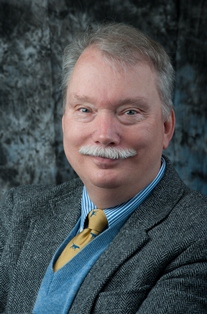- About Archives
- About SAA
- Careers
- Education
- Publications
- Advocacy
- Membership
 Professional Experience: Head, Louisiana Research Collection, Tulane University, New Orleans, Louisiana, 2009–present; Head, Manuscripts Department, Tulane University, 1990–2009; Research Assistant (supervised manuscripts processing), University of Arkansas, 1986-1990; manuscripts processor, University of Arkansas, 1984-1986.
Professional Experience: Head, Louisiana Research Collection, Tulane University, New Orleans, Louisiana, 2009–present; Head, Manuscripts Department, Tulane University, 1990–2009; Research Assistant (supervised manuscripts processing), University of Arkansas, 1986-1990; manuscripts processor, University of Arkansas, 1984-1986.
Education: Modern Archives Institute, 1988; MA, History, University of Arkansas, 1980.
Honors: SAA Fellow, 2010; Archivist/Citizen Award, Greater New Orleans Archivists, 2008; ACA Distinguished Service Award, 2004; Society of Southwest Archivists Distinguished Service Award, 1995; Newcomb College Fellow, Tulane University, 1992-1996; SAA Resolution of Commendation for creating the SAA Mentoring Program, 1994; Walter L. Brown Award, Arkansas Historical Association, 1988.
Professional Activities: Society of American Archivists: Executive Committee, 2008-2009; Council, 2006-2009; Local Arrangements Co-Chair, 2004-2005; Co-Chair, Committee on Institutional Evaluation and Development, 1995-96; Chair, Membership Committee, 1992-1995; Founder, SAA Mentoring Program, 1994; Chair, Mission and Expectations Committee of the Task Force on Sections and Roundtables, 1994; and other activities. Society of Southwest Archivists: President, 1999–2000, and other activities. Academy of Certified Archivists: President, 2001–2002, and other activities. Greater New Orleans Archivists, President, 2006-2008, and other activities. Other: ALA/RBMS Local Arrangements Committee 1993, Association of Canadian Archivists (1998–2003 and present), CIMA (1991–1995; keynote speaker, 1992), GNO-ARMA, LAMA, MAC (1984–1995), MARAC (1989–1999).
* * *
Question posed by Nominating Committee: Describe your vision for accomplishing the strategic goals of technology, diversity, and advocacy/public awareness as outlined in the Strategic Priority Outcomes and Activities document.
Which is more important, to plan or to do?
Drafting strategic plans can cost thousands of dollars and span years of meetings. Often, the result is . . . a plan, as if the plan itself were the goal. Leaders must therefore ensure that strategic plans do not assume lives of their own but remain merely tools for achieving real accomplishments.
Leaders can also be the problem. Leaders sometimes use strategic plans to “set in stone” their goals, so future officers have little choice but to continue programs previous officers held dear. That reduces personal initiative, hinders creativity, and limits the next generation’s voice. While we all want leaders with clear objectives, a just-as-important leadership qualification may be the strength to “let go” and allow whoever follows space to express their vision for the society.
It is therefore never a leader’s job simply to implement a strategic plan. Instead, leaders should ensure that plans are continually debated and refined to reflect changing conditions. To that end, I would dedicate a portion of each Council meeting to discussing where our goals stand, which unforeseen issues have arisen, and whether our planning continues to reflect our members’ wishes.
I would also invite a facilitator to lead Council through annually reviewing our strategic plan. This might expand one Council meeting by perhaps half a day but it would help ensure that changing conditions and fresh ideas received the professional and systematic consideration they deserved. I would also encourage first-year Council members to take a strong role in developing SAA’s long-term policies. Freshman Council members are often the most aware of newer concerns and can be a valuable check on older ways of thinking.
Regarding specific goals, SAA’s equal opportunity policy covers the diversity basics (at least, I hope so, since I wrote it), but equal opportunity alone cannot ensure social, cultural, geographic, and institutional diversity. With some significant exceptions, SAA’s strategic actions have been largely inward-looking (such as a new workshop or outreach handout). It is time to build upon SAA’s internal successes by looking outward. As SAA President, I would therefore promote:
To build upon our successes, SAA must look beyond itself. Advocacy, diversity, and technology all share a commitment to cooperation and outreach. Working collegially with related organizations can be an important path for taking all of our strategic goals to the next level.